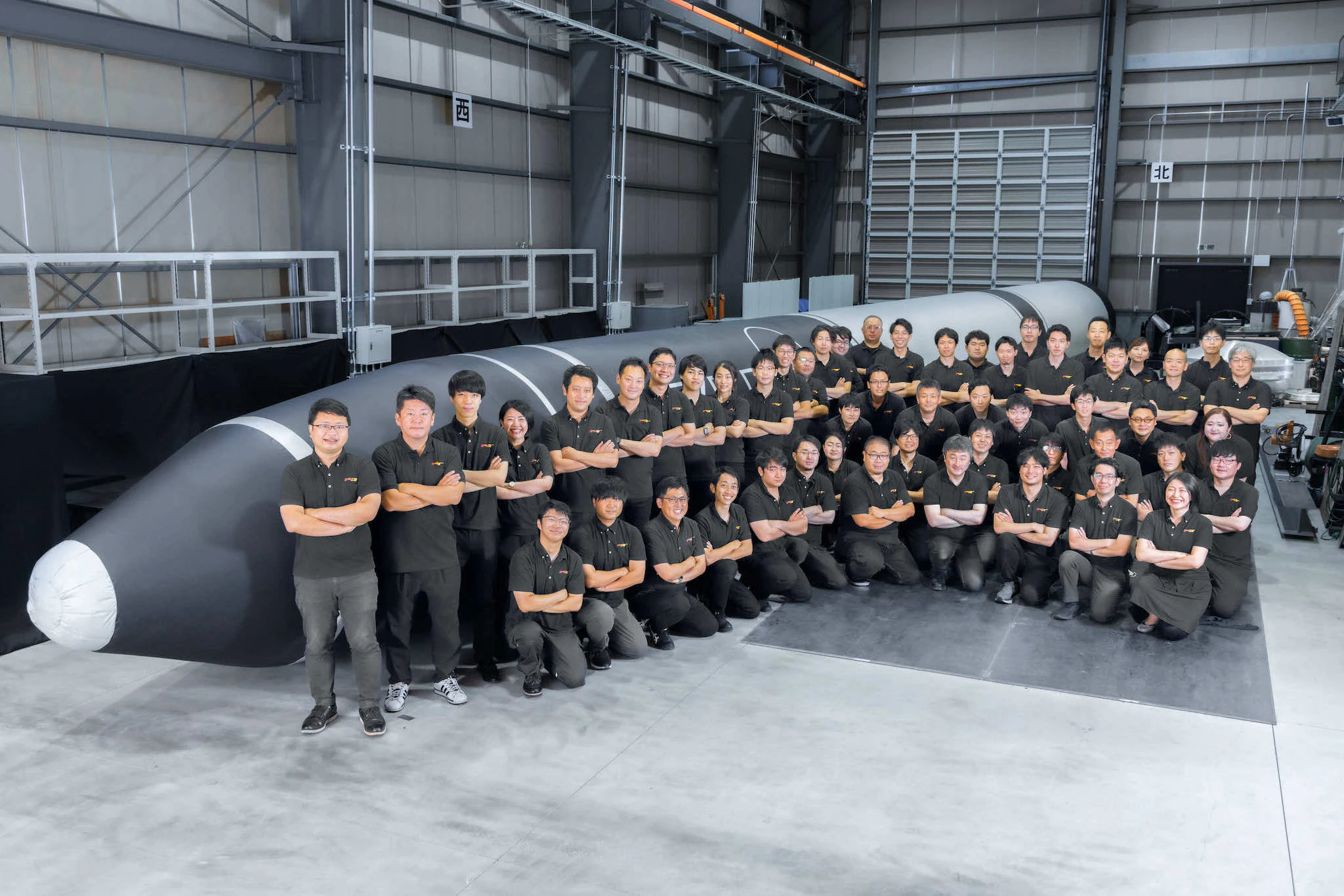
Interstellar Technologies Inc.
Into the arena of space Supporting the future of Interstellar Technologies, a rocket developer
Rockets, artificial satellites, space, ... Many people may consider them as things that are remote and not related to themselves. However, outer space is becoming more related to our lives than we think. The space industry is expected to be a next growing industry, and it is gradually but steadily becoming realistic. Supporting the space industry, which has an unlimited potential, is one of the businesses of Kyowa Electronic Instruments (Kyowa). In this feature article, we interviewed Mr. Kodai Horii, who is in charge of the design, production, and maintenance of ground support equipment in Interstellar Technologies which develops, manufactures, and launches rockets in collaboration with Kyowa. We interviewed him about the relationship with Kyowa and how Interstellar Technologies looks at the future.
For the safe launch of rockets, repeat the trial-and-error process again and again
Tell me about the business of the Interstellar Technologies. and about your job.
Interstellar Technologies develops and manufactures rockets, which are the means to transport people and goods to space. The unique thing about Interstellar Technologies is that it conducts the whole process of designing, manufacturing, testing, launching, and maintaining rockets by itself, and it also develops ground facilities. We aim to realize globally competitive space transportation services.
The ground support equipment (GSE) group, which I belong to, is entirely in charge of ground facilities for launching rockets. These facilities include the control center, which keeps track of the location of a rocket, and the launcher, which supports a rocket before it is launched. We design, manufacture, and maintain them for each occasion of a launch or a launch test.
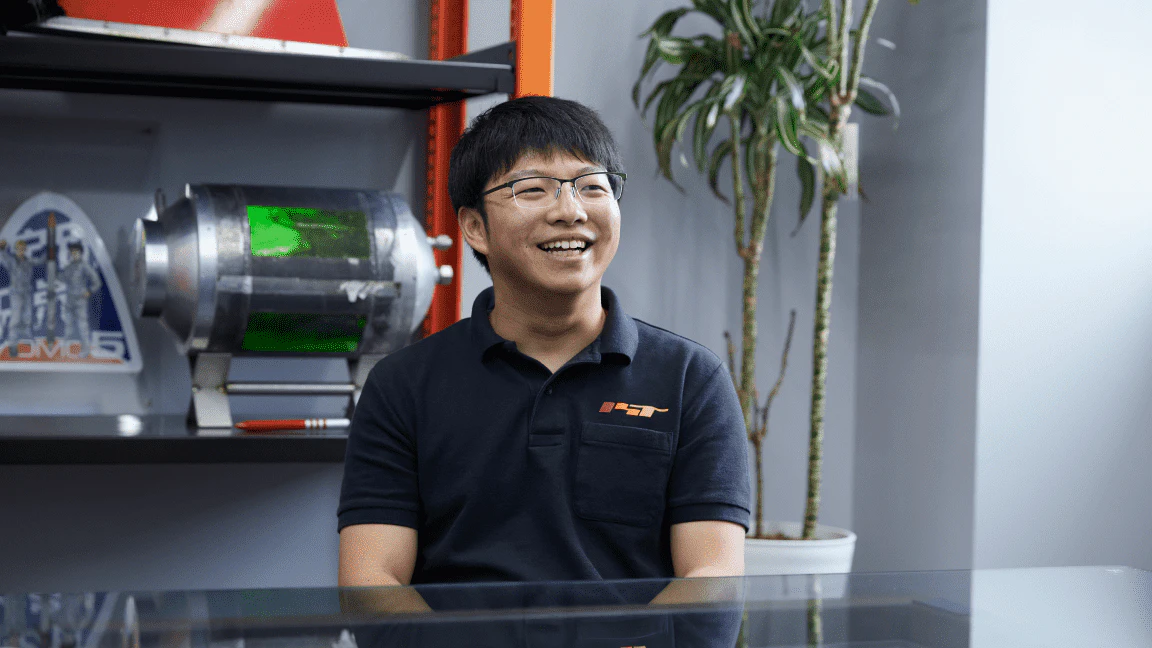
What steps do you take until a launch of a rocket and how do you collaborate with Kyowa in that process?
During the development of a rocket engine, we make a test called " static fire testing" in order to confirm that the engine delivers proper performance and to measure the force and pressure that the engine generates to see if there are any problems. In that test, we use devices of Kyowa such as the pressure transducer and a sensor called "load cell" for measuring the force generated by the rocket engine. The development of an engine is completed if it passes a series of static fire testing with varied conditions. After the development of an engine, we manufacture an engine that is actually installed on a rocket. Every time we install a manufactured engine on a rocket, we make static fire testing, and we use products of Kyowa for that test.
Beside those for the static fire testing, there are other products of Kyowa that we use. In the development of the rocket's body structure, we conduct a test that applies pressure from the top of the rocket body. In that test, we use "distortion gage" of Kyowa to find the degree of distortion when force is applied. With the distortion gage, we can measure the distortion to find the points and manners of deformation and breakage. We seldom use Kyowa products for the actual launch of a rocket, but it is very useful in stages of development and testing.
These products work behind the scenes, but are indispensable for launching rockets, aren't they?
This test may be an unnoticed job that requires a huge amount of trial-and-error effort. However, in order to launch rockets safely, we must clear tests at hand steadily. Every time we find a problem during the process, we solve it and test it again. It is the products of Kyowa that support us in these tests.
What made Interstellar Technologies decide to collaborate with Kyowa?
The rocket engine static fire testing, by definition, measures the performance during combustion, and only the pressure sensor of Kyowa was able to endure the high and extremely low temperatures. There are many pressure sensors that can be used in environments of normal temperature such as water and atmosphere. However, our rockets are liquid rockets, which use liquid oxygen and liquid methane, so that they require the pressure sensor of Kyowa, which works in an extremely low temperature range. We rely on Kyowa because it is the only manufacturer in Japan that provides a pressure sensor usable in an extremely low temperature range.
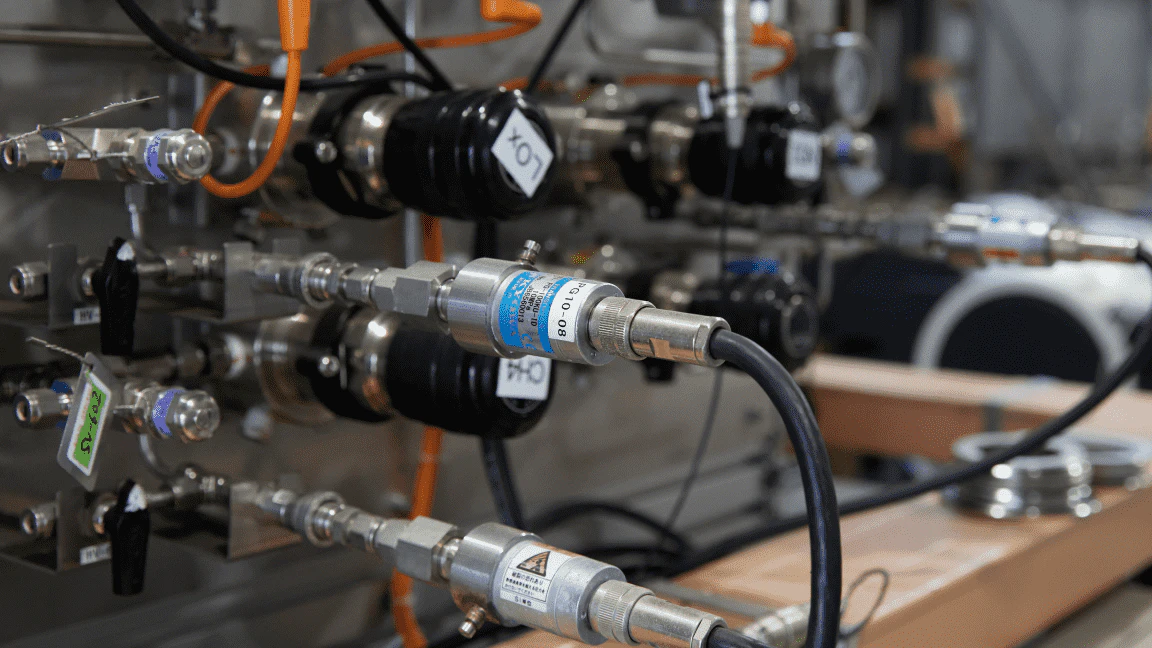
Reliable company that supports the entire process through to the launch of a rocket
How does Kyowa support your company with services such as consulting?
Kyowa provides timely recommendations that are best for our needs such as a sensor for obtaining data and a connector that endures in a severe environment. The company also responds with a custom-order product quickly to our requirement such as a cable of a certain specification and length. Its flexible services in the face of a recent shortage of semiconductors help us a lot.
What do you think are the advantages of collaborating with Kyowa?
I was studying rocket engines at college, and have been using pressure meters of Kyowa since then. However, we were using a machine of a different company for converting data obtained from the pressure meter. We often faced inconveniences due to the difference of manufactures of the pressure meter and converter. Now, we only use products of Kyowa with support for data conversion, and we are grateful for that.
So, you have been developing rocket engines since you were in university! What made you get interested in rockets?
When I was a child, my parents brought me to Tsukuba Space Center. There was a corner in which people can experience the large sound of a rocket engine, and the power I felt there became my passion. And now, I engage in the development of rockets. I feel fulfilled every day with the development of rockets even now.
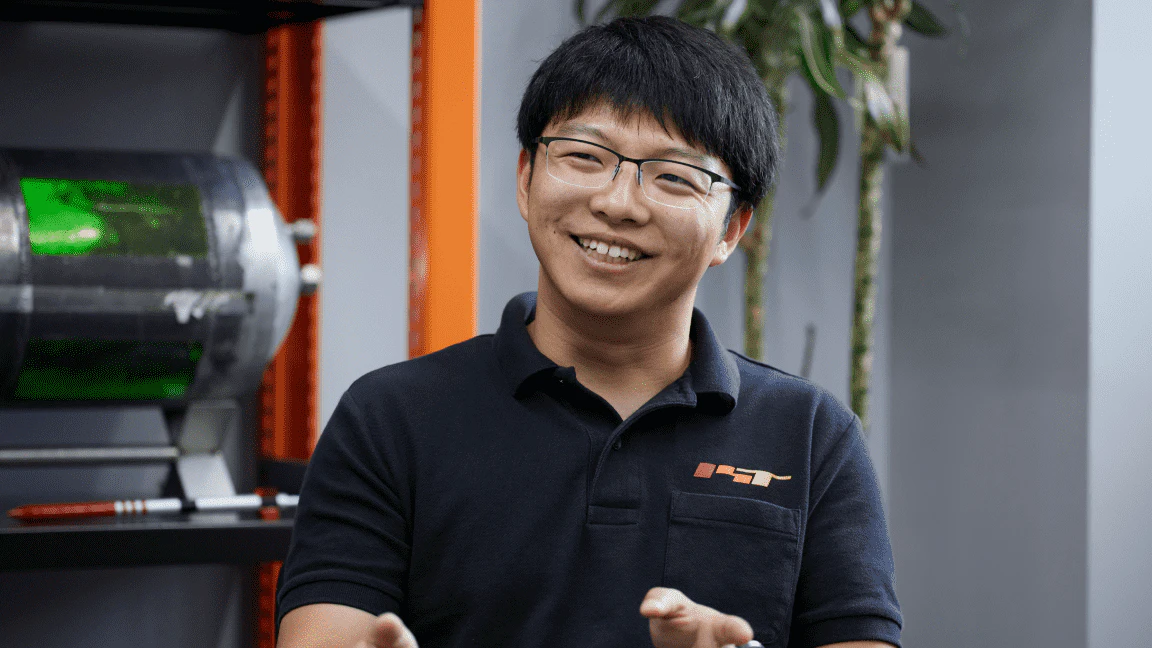
Since when does your company use products of Kyowa?
It was seven years ago that we first introduced a product of Kyowa. The former organization of our company was called "Natsu no Rocket Party" whose members were space lovers around the nation. I hear that Natsu no Rocket Party have also been using products of Kyowa. We have been conveniently using Kyowa's products since before we started business as a company.
In these years, however, I heard that they were just unilaterally buying and using the company's products, and did not place special orders of parts as we do now. Now, I cannot imagine that there was a time when they managed without support from Kyowa that we receive now.
Getting closer to space, one step at a time. Future of the space industry that Interstellar Technologies looks ahead
How do you think the future relationship will develop between Interstellar Technologies and Kyowa?
We are preparing facilities for the static fire testing of a next engine, which requires a significantly larger number of measurement points than ever before. The number of measurement points of the engine is four to five times the number of a past engine, so that we need a large number of sensors to measure them and a system to process a huge amount of data. We need continued support from Kyowa.
Tell me about the future that Interstellar Technologies looks ahead.
Rockets are the sole means of transportation to space. The cost reduction and higher frequency of rocket launches, which constitutes the infrastructure of the space development, is the key to the development of the space industry. For example, the Internet was widely popularized by broadband access services. Likewise, I think space transportation services provided by private companies like us will soon be used by many people and industries to provide services that are based on space data. Space transportation services will be more active toward the future. Various on-ground tests continue to be indispensable to launch rockets frequently and safely. I would like to continue long-term collaboration with Kyowa. Of course, there are other companies that manufacture rockets and engage in the space satellite business, so I would like to collaborate with various companies to boost the space industry of Japan.
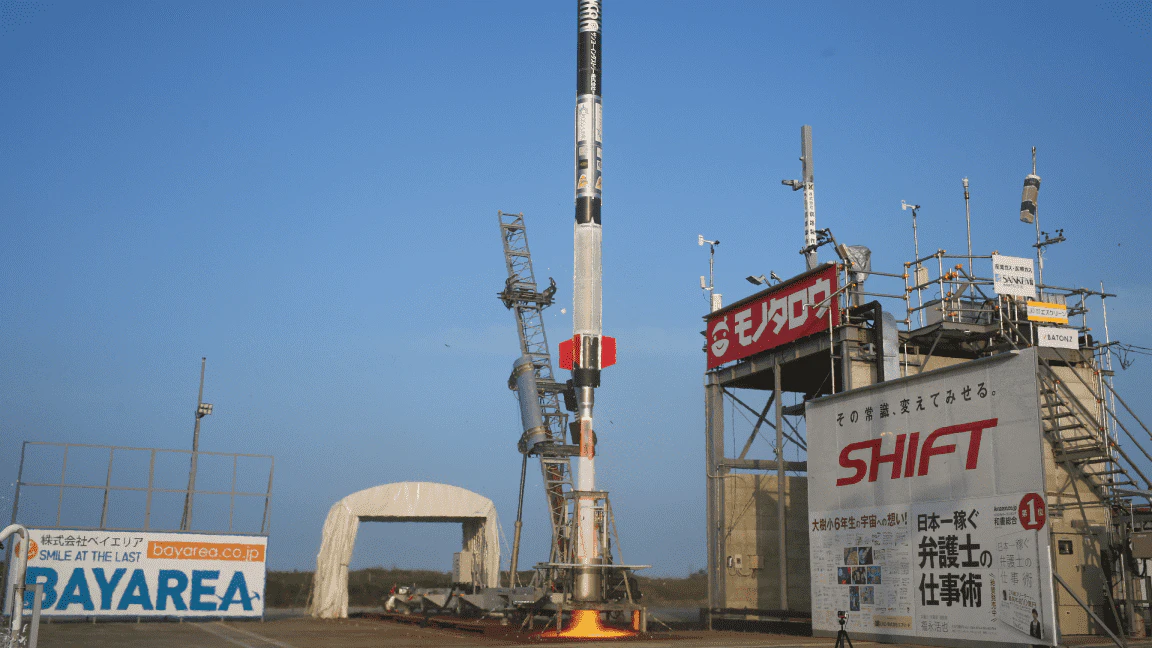
What do you think we will find after the space industry becomes larger?
Space is nearer than generally imagined, and I myself feel it every day. We now hear and see more news about space and satellites. If more people become aware with outer space, the space industry will be boosted and more people will engage in the space industry, which in turn accelerates the development. This way, space will become more familiar to people. Someday, people may be able to take photos from satellites in real time like they take pictures by smartphones now, and people may become able to go to space like a trip on earth.
It is a dream come true, isn't it?
The rocket business is essentially a transportation business like the business of planes and trucks. Its mission is to send artificial satellites, customers' cargoes, to the required places at the required timings. The development of the space industry is a national project, and I think we are getting closer to space step by step just now. Moving forward, I would like to collaborate with Kyowa to walk step by step along the road toward space nearby.
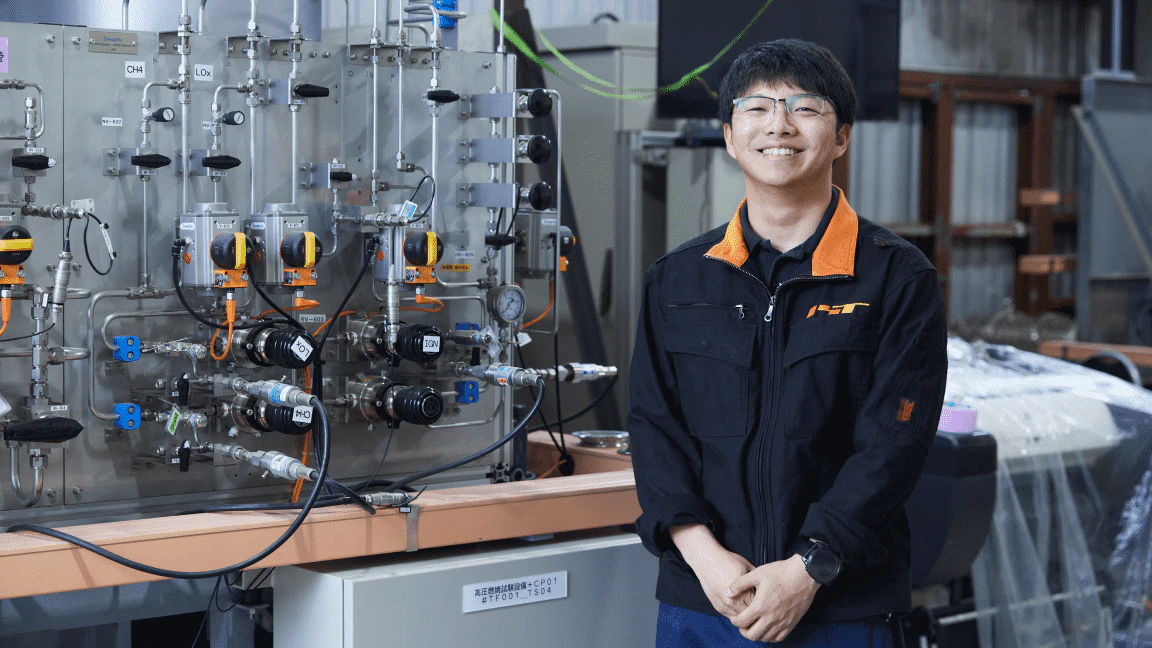
Please feel free to contact us if you have any problems with measurements or if you have questions about our products.